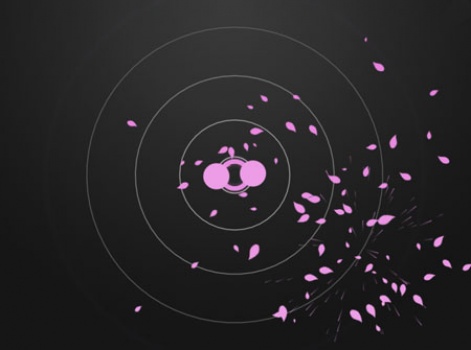So following the release of iPad title Pulse: Volume One in May - currently available for a 60 percent discount - we caught up with Will Stallwood to find out more about the game and what's next for the studio.
PocketGamer: When you started Cipher Prime, did you know you'd be focusing on audio-visual games?
Will Stallwood: Hahaa... I'm pretty sure we had no idea what we were doing. My design skills coupled with Dain's musical talent just sort of fell together. That relationship has been shaping our games ever since.
Can you explain the inspiration behind Pulse?
I was inspired at 2010's IndieCade Festival. There was so much magic in the air. IndieCade is one of those events that just leaves you wanting to create.
Examining current rhythm games, the concept of working in a radial space with measures of music rather than whole songs just seemed so intuitive. The idea was formed more from what seemed missing in today's rhythm games rather than thin air.
How was the design linked to the game's music?
We link our music to our design, and our design to our music. We let the music speak and use visual design to create a larger impact. We closely tie these two components all the time.

What were the biggest obstacles you had to overcome?
There were so many firsts we had to deal with for Pulse.
- our first Unity game
- our first self-published iOS game
- our first music rhythm game
- our first collaborative music game
- our first game with our new team member, Kerry Gilbert
- our first iPad game
Out of all these things, I would have to say adjusting to both Unity and iOS was the most challenging. But self-publishing has quickly turned to being the hardest item in the long run.
Trying to develop new titles and also keep up on marketing and PR has just been impossible. We're very green in this area, but we're working on it. Our fans help us out a lot by just talking about our games and letting their friends know we exist.
Can you give a rough breakdown of the development time and any significant tools you used?
The initial prototype of Pulse, which was an editor, game engine, song, and two levels took 3 days to create in Flash. Once we decided we loved the prototype, it took us about 3 months to finish the final development in Unity.
What part of Pulse are you most happy with?
As the designer, my absolute favourite part is the minimalistic look. The basic tutorial that only instructs with Hit, Miss, or Perfect just feels right.
What most surprised you about the audience feedback?
I think the big thing was the responses to content. We had been planning to release four new tracks a month for free after release. The original game shipped with eight tracks.
The general feedback we got was the game wasn't long enough. It seems like promises from companies to update their content are not worth much these days.
We've continued to update Pulse and our next update will be fantastic. I'm really hoping this new market for us will start to see we stick by our words.
What's your view on its longevity?
I think the game's quite long once you consider you're getting four additional tracks a month. A typical CD costs $10 and has eight to 10 tracks.
Pulse is currently a $1.99 interactive experience with a base install of eight tracks and then tons of free update content. I don't think longevity is even slightly an issue.
How much difference did Apple's iPad Game of the Week accolade make to your sales?
It's very hard to know as this is our first venture to iOS and the iPad, but I can only imagine it has had a substantial impact on our sales. We are incredibly grateful and really had no idea it was happening.
You've now made two very colourful, if abstract, games. Do you think you'll ever make something that has more of traditional game structure?
Sadly, nobody remembers we had another game called Fractal. It's a core puzzle game and very traditional in its nature, but ultimately, we were upset with the final product and have since spent over seven months re-creating the game from the ground up in Unity3d.
We'll be shipping it on the iPad very soon, and giving all our Mac/PC customers free copies of the new version and re-releasing the game on a very popular PC distribution platform.
What's else is Cipher Prime up to?
We are busy little bees. We're working on three new smaller titles, also trying out some things on new platforms, and our websites are in the process of all being re-designed and integrated together.
We're also talking about a new Auditorium HD experience for PC/MAC/iOS with a world builder. Last, but not least, tons more free Pulse music.
Thanks to Will for his time.
You can find out more about Cipher Prime here.





















